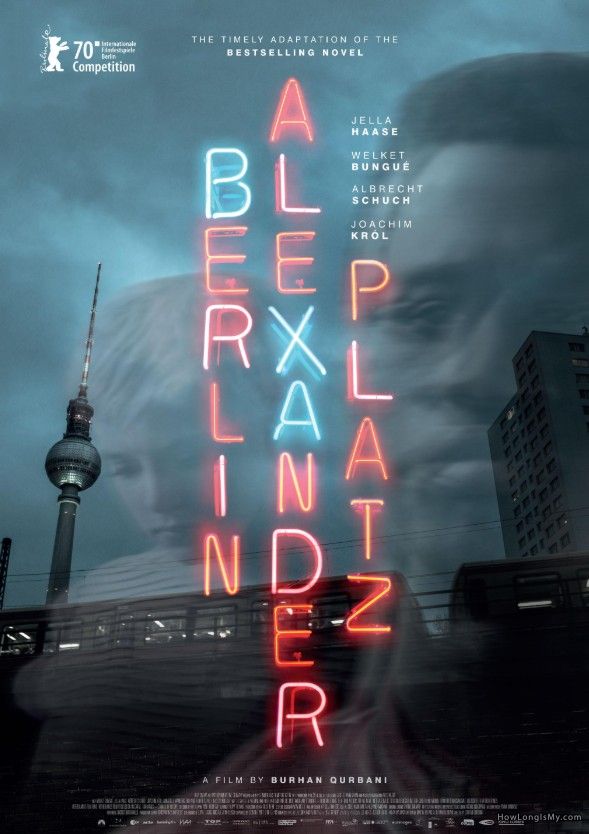When we think of drama films, we often picture intense performances, heartfelt storytelling, and a runtime that fits neatly into an evening. But what if a drama movie stretched far beyond the usual two-hour mark, demanding not just hours but an entire day of your time? Enter “Berlin Alexanderplatz”, the longest drama movie ever made, a 15.5-hour epic that redefines the boundaries of cinematic storytelling.
A Masterpiece of Emotional Depth
 Directed by Rainer Werner Fassbinder and released in 1980, “Berlin Alexanderplatz” is a monumental adaptation of Alfred Döblin’s 1929 novel of the same name. The film tells the story of Franz Biberkopf, a man trying to rebuild his life after being released from prison, only to be swept up in the chaos of 1920s Berlin. It’s a tale of love, betrayal, and redemption, set against the backdrop of a society on the brink of collapse.
Directed by Rainer Werner Fassbinder and released in 1980, “Berlin Alexanderplatz” is a monumental adaptation of Alfred Döblin’s 1929 novel of the same name. The film tells the story of Franz Biberkopf, a man trying to rebuild his life after being released from prison, only to be swept up in the chaos of 1920s Berlin. It’s a tale of love, betrayal, and redemption, set against the backdrop of a society on the brink of collapse.
What sets “Berlin Alexanderplatz” apart is its sheer scale. The film is divided into 13 episodes and an epilogue, totaling 15.5 hours. This length allows Fassbinder to delve deeply into the psyche of his characters, exploring their motivations, flaws, and relationships with unparalleled nuance. It’s a drama that doesn’t rush; instead, it unfolds slowly, drawing viewers into its world and making them feel every moment of Franz’s turbulent journey.
Why So Long?
Fassbinder’s decision to make “Berlin Alexanderplatz” so lengthy wasn’t just about staying faithful to the source material—it was about creating an immersive experience. By dedicating so much screen time to Franz’s story, Fassbinder allows the audience to live alongside the characters, to feel their joys and sorrows as if they were their own. The film’s length is part of its power, transforming it from a simple narrative into a profound exploration of human nature.
Watching “Berlin Alexanderplatz” in one sitting is a daunting task, and few have attempted it. The film is often screened over multiple days at festivals or viewed in segments at home. Yet, its length is integral to its impact. It’s not just a movie; it’s an emotional marathon, a journey that leaves a lasting impression on those who undertake it.
A Legacy of Epic Storytelling
While “Berlin Alexanderplatz” holds the title of the longest drama movie, it’s part of a broader tradition of epic filmmaking. Films like “Shoah” (9.5 hours) and “The Best of Youth” (6 hours) also push the boundaries of runtime and storytelling, proving that sometimes, more is more. These films challenge our expectations of cinema, reminding us that art can be as much about reflection and immersion as it is about entertainment.
For most of us, watching “Berlin Alexanderplatz” in full might seem impossible. But its existence is a testament to the power of film to challenge, inspire, and transform. Whether you watch it in one go or in pieces, “Berlin Alexanderplatz” is a cinematic masterpiece that stays with you long after the credits roll.
References and Sources
- IMDb (Internet Movie Database)
Description: A comprehensive database of films, including details about “Berlin Alexanderplatz” and its director, Rainer Werner Fassbinder.
URL: https://www.imdb.com/title/tt0080320/ - The Criterion Collection
Description: A respected resource for classic and influential films, offering insights into “Berlin Alexanderplatz” and its significance in cinema history.
URL: https://www.criterion.com/films/28405-berlin-alexanderplatz - The Guardian
Description: A reputable news outlet that has covered epic and experimental films, including “Berlin Alexanderplatz”.
URL: https://www.theguardian.com/film
